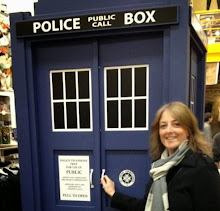Saturday, November 8, 2008
CCTV is not the best way to combat crime
British Columbia’s provincial government is planning to spend one million dollars on a pilot CCTV project to help combat crime in Vancouver, Kelowna and Surrey.
According to the province’s Solicitor General, John van Dongen:
Technologies such as CCTV can greatly assist the police and the prosecution in bringing offenders to justice. We believe CCTV can be an important tool in catching criminals and improving public safety.
If we look at the results of CCTV use in the U.K., van Dongen is vastly over-stating its effectiveness. The U.K. began experimenting with CCTV in the 1970’s and its use has grown to more than 4 million cameras across the UK, or at least one for every 14 people. In 2002, it was estimated that the average London resident was captured on camera about 300 times per day. Since the mid-1990’s billions of pounds have been spent on CCTV technology in the UK.
Yet, despite all this, a recent report from New Scotland Yard indicated that only about 3% of crimes were solved by the use of CCTV. Furthermore, a report by the Home Office in 2002, which reviewed 18 other studies on the effectiveness of CCTV, found just a 4% overall reduction in crime when CCTV cameras were used.
Given these results, the evidence tells us that the return on investment with CCTV is far too low to warrant the expense. One study indicates that there would have been a greater reduction in crime if those billions of pounds had been spent on more cops walking the beat. Jonathan Klick, a law professor at Florida State University, and Alexander Tabarrok of George Mason University, studied the increased police presence in key areas of Washington D.C. during high terror alert days and found a 15 percent reduction in crime.
The added and less quantifiable cost of CCTV is the loss of privacy to citizens and the negative impact on civil liberties. B.C.’s Solicitor General said he intended to work with the province’s Information and Privacy Commissioner “to establish clear rules for the collection, management and protection of information from the cameras.” However, Privacy Commissioner David Loukidelis said he learned about the program a mere fifteen minutes before the news conference announcing the CCTV pilot project.
BC residents and politicians who are concerned about crime and public safety should advocate for more police officers, community policing programs and proven crime prevention measures (such as improved lighting) instead of throwing away millions in tax dollars in the creation of a surveillance society.
Related posts:
Smile, You're on Candid Camera
Cops Want Covert Cameras in Public Places
Homeland Security's Chertoff: more surveillance, less privacy
Posted by Sharon E. Herbert at Saturday, November 08, 2008 4 comments
Labels: British Columbia, CCTV, Surveillance




